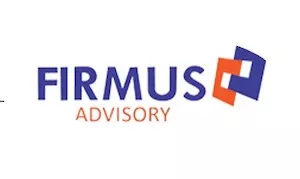Meetings are an important aspect of any company as it not only speaks of the corporate governance and management of such company but also how legally compliant the company is. These meetings ensure that shareholders, directors, and other stakeholders can discuss and decide on essential matters affecting the company.
The law that guides companies' meetings is the Companies and Allied Matters Act 2020 (CAMA) and the regulatory body in charge of enforcement is the corporate affairs commission (CAC).
There are different meetings that companies are expected to observe and, in this article, we will be looking at them.
Types of Meetings
1. Statutory Meeting
Only public companies are expected to hold a statutory meeting of the members of the company within a period of six months from the date of its incorporation. This is a requirement by law that excludes private companies.
The purpose of this meeting is to give members a progress report from directors and promoters immediately after the incorporation of the company. Failure to hold the meeting is a ground for winding-up but the court may instead, order that the meeting should be held and the defaulters to pay the cost. The directors are expected to send a statutory report at least 21 days before this meeting to every member of the company, the report will contain pre incorporation details and all that will be discussed at the meeting.
2. Annual General Meeting (AGM)
This Meeting Is Mandatory for All Companies in Nigeria and it must be held within 18 months of Incorporation, and Subsequently, not Later than 15 months after the last AGM.it is important to note that as far as a company holds its first annual general meeting within 18 months of its incorporation it does not need to hold another one that same year or in the following year.
After the first annual general meeting, the Commission has the power to extend the time within which any annual general meeting will be held but it is not more than an extra three months added to the required timeline which means it must not exceed 18 months between the date of the last annual general meeting and the date of any meeting extended.
The purpose of an AGM is to present the company's financial statements, declare dividends, appoint/reappoint directors and auditors, and discuss other critical matters. Notice of the meeting must be given at least 21 days before the meeting to:
- Every member of a company
- Anyone who share devolves to by reason of being a legal representative, receiver or a trustee in bankruptcy of a member of a company
- Directors of a company
- Auditor for the time being of the company
- The company secretary
- CAC in the case of public companies.
Every member either in person or by proxy (when permitted) is entitled to attend the meeting, speak and vote on any matter discussed at the AGM can do so. After holding an AGM, a copy of the resolution at the meeting is expected to be filed with CAC within 15 days of passing the resolution.
Please note that a member is a shareholder or subscriber of the Memorandum and Articles of Association a Company or every other person who agrees in writing to become a member of a company whose name is entered as member in the Company's register of members.
When a company fails to hold an AGM, CAC can on its own or through the application of a member of the company direct that it be held.
However, by the provisions of section 237 sub section 1 of CAMA, small companies and those with a Single Shareholder are not mandated to hold an AGM.
To view the article in full click here
The content of this article is intended to provide a general guide to the subject matter. Specialist advice should be sought about your specific circumstances.


